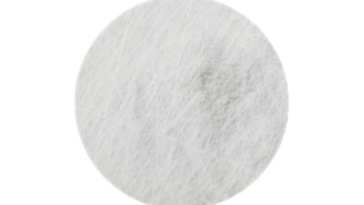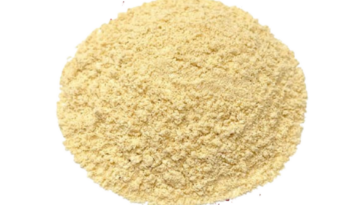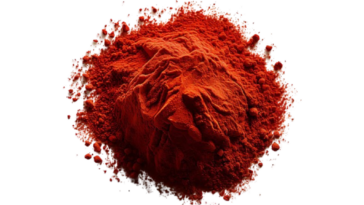Raspberry powder, derived from raspberries, traces its origins back to the Eurasian continent, where wild raspberries grew abundantly in regions ranging from Eastern Europe to northern Asia. Native American tribes also utilized wild raspberries long before the arrival of Europeans in the Americas. These small, delicate fruits were historically foraged and consumed fresh or dried for preservation. Over time, cultivation of raspberries became widespread, with varieties selected for their flavor, size, and adaptability to various climates.
The process of creating raspberry powder involves dehydrating ripe raspberries and grinding them into a fine powder. This powder retains much of the flavor, aroma, and nutritional content of fresh raspberries, making it a convenient and versatile ingredient in culinary applications, such as baking, smoothies, and flavoring. Raspberry powder’s popularity has surged in recent years due to its rich antioxidant content, vibrant color, and ability to enhance both sweet and savory dishes, making it a favorite among health-conscious consumers and culinary enthusiasts alike.
Vitamins & Minerals:
Raspberry powder, derived from raspberry fruit, contains a variety of vitamins and minerals that contribute to its nutritional profile. Some of the key vitamins found in raspberry powder include Vitamin C, Vitamin K, and Vitamin E. Vitamin C, also known as ascorbic acid, is a powerful antioxidant that helps protect cells from damage caused by free radicals. It also plays a vital role in collagen synthesis, which is essential for maintaining healthy skin, bones, and blood vessels. Additionally, Vitamin C supports the immune system by promoting the production and function of white blood cells, which help fight off infections and illnesses. In raspberry powder, Vitamin C contributes to the fruit’s overall antioxidant properties, aiding in overall health and wellness.
Another important vitamin found in raspberry powder is Vitamin K. Vitamin K is crucial for blood clotting, as it helps the body produce proteins necessary for coagulation. It also plays a role in bone health by assisting in the regulation of calcium, which is essential for maintaining strong and healthy bones. Additionally, Vitamin K is involved in regulating blood sugar levels and supporting heart health. Its presence in raspberry powder adds to the fruit’s nutritional value, promoting blood clotting, bone health, and overall cardiovascular function. Overall, the combination of these vitamins in raspberry powder contributes to its antioxidant, immune-boosting, and bone-strengthening properties, making it a valuable addition to a balanced diet.
In terms of minerals, raspberry powder contains essential nutrients such as potassium, magnesium, and manganese. Potassium is an electrolyte that plays a crucial role in maintaining proper fluid balance, nerve function, and muscle contraction. It also helps regulate blood pressure levels, supporting cardiovascular health. Magnesium is involved in over 300 enzymatic reactions in the body, contributing to processes such as energy production, muscle and nerve function, and DNA synthesis. Additionally, magnesium plays a role in regulating blood sugar levels and blood pressure, and it supports bone health. Manganese is a trace mineral that acts as a cofactor for various enzymes involved in metabolism, bone formation, and antioxidant defense. It also plays a role in collagen synthesis, promoting skin health and wound healing. Together, these minerals found in raspberry powder support overall health and wellness, contributing to functions such as muscle and nerve function, cardiovascular health, and bone strength.
Probiotic, Prebiotic, or Postbiotic:
Raspberry powder, derived from raspberries, is primarily composed of fiber, vitamins, minerals, and antioxidants. While it’s not inherently a probiotic, prebiotic, or postbiotic like some other substances, it can indirectly support gut health.
- Prebiotic: Raspberry powder contains fiber, particularly soluble fiber like pectin. Prebiotics are non-digestible fibers that promote the growth of beneficial bacteria in the gut. These fibers serve as food for probiotics, aiding in their growth and activity. So, while raspberry powder itself isn’t a prebiotic, its fiber content can support the growth of probiotics.
- Probiotic: Probiotics are live microorganisms that confer health benefits when consumed in adequate amounts. Raspberry powder doesn’t contain live bacteria like probiotics do. However, by promoting a healthy gut environment through its fiber content, it indirectly supports the growth and activity of probiotics in the gut.
- Postbiotic: Postbiotics are metabolic byproducts of probiotics or other microorganisms that have health benefits. Raspberry powder doesn’t directly produce postbiotics. However, by supporting a healthy gut environment, it may indirectly contribute to the production of postbiotics by promoting the growth of beneficial gut bacteria.
In summary, while raspberry powder isn’t a probiotic, prebiotic, or postbiotic in itself, its fiber content can indirectly support gut health by promoting the growth of beneficial gut bacteria, which in turn can contribute to overall digestive health and well-being.
Dietary & Health Information:
Raspberry powder, derived from raspberries, carries several health benefits due to its rich nutrient profile. Here’s a breakdown of its dietary and health information:
- Nutrient Content: Raspberry powder is rich in various vitamins, minerals, and antioxidants, including vitamin C, vitamin K, manganese, and dietary fiber. These nutrients contribute to overall health and may help in preventing certain diseases.
- Antioxidant Properties: Raspberries are known for their high antioxidant content, primarily due to compounds like flavonoids, phenolic acids, and ellagic acid. These antioxidants help in neutralizing free radicals in the body, reducing oxidative stress, and lowering the risk of chronic diseases such as heart disease and cancer.
- Fiber Content: Raspberries are a good source of dietary fiber, which is essential for digestive health. Fiber helps in promoting regular bowel movements, preventing constipation, and maintaining a healthy gut microbiota.
- Low in Calories: Raspberry powder is relatively low in calories, making it a suitable addition to weight management diets. It provides flavor and nutrients without significantly increasing calorie intake.
- Potential Health Benefits: Consuming raspberry powder or raspberries regularly may offer various health benefits, including improved heart health, better blood sugar control, and enhanced cognitive function.
- Recommended Intake: While there’s no established maximum daily intake for raspberry powder specifically, it’s advisable to consume it in moderation as part of a balanced diet. Excessive intake may lead to gastrointestinal discomfort due to its fiber content. As with any dietary supplement, it’s best to follow the recommended serving size provided by the manufacturer.
- Possible Side Effects: Raspberry powder is generally safe for most people when consumed in normal food amounts. However, some individuals may be allergic to raspberries or experience mild gastrointestinal issues such as diarrhea or bloating if consumed in large quantities.
As with any dietary supplement or food product, it’s essential to consult with a healthcare professional or a registered dietitian before incorporating raspberry powder into your diet, especially if you have any underlying health conditions or concerns. They can provide personalized recommendations based on your individual health status and dietary needs.




 No products in the cart.
No products in the cart.